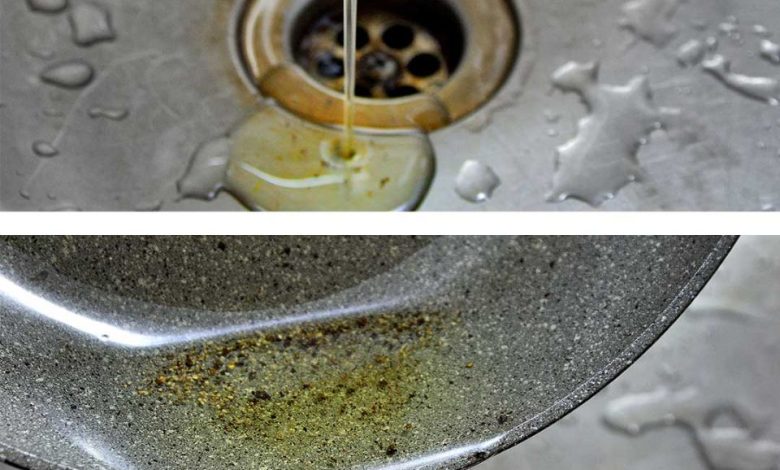Should oil be poured down the kitchen sink? My mother-in-law says yes but I’m not so sure.

Any regular culinary enthusiast should be versed in the nuances of oil disposal. The manner in which we discard cooking oils can have profound repercussions on our plumbing systems and the environment. Addressing the consequences of improperly disposed cooking oil—such as clogged pipes and disrupted sewage systems—can become quite costly. The accumulation of fats, oils, and greases (FOGs) poses a threat not only to local wildlife but also to wastewater treatment infrastructures.
ADVERTISEMENT
If you’re uncertain about the proper method for disposing of cooking oil, this article aims to elucidate why pouring it down the drain is inadvisable. By the end, you will be equipped with the knowledge to discard food remnants in an environmentally conscious manner. This awareness benefits both your home’s plumbing system and the broader ecosystem.
ADVERTISEMENT
Why You Shouldn’t Pour Oil Down the Kitchen Sink
- Clogged Pipes Cooking oil can cling to the insides of pipes, eventually leading to significant blockages. These obstructions can result in slow drains or more severe plumbing issues.
- Fatbergs When oil combines with other waste materials, it can form large, solid conglomerations known as “fatbergs.” These are composed of non-biodegradable substances such as oils, grease, and fats, which can severely damage municipal sewage systems, leading to costly repairs.
- Environmental Impact Improper disposal of oil can have detrimental effects on the environment. Overflowing sewage systems, clogged with oil, can release pollutants into nearby water bodies, endangering aquatic life and contaminating drinking water sources.
- Harm to Wildlife Oil that enters natural water bodies can coat the feathers and fur of animals, reducing their buoyancy and insulation. This exposure can be fatal for wildlife.
- Costly Repairs Repairing damaged sewage systems and clearing blocked pipes can be a tedious and expensive process. Proper disposal of oil can help households and communities save substantial amounts of money in the long run.
How to Dispose of Used Cooking Oil Properly
- Reuse the Oil If the oil remains relatively clean after use, consider filtering it and storing it for future cooking. This practice allows you to extend the life of your cooking oil and reduce waste.
- Seal in Containers Instead of disposing of used oil down the drain or in the trash, transfer it into a sealable container, such as a used jar or bottle, and then discard it.
- Recycling Programs Many communities offer recycling programs that accept used cooking oil. Look into local recycling centers or collection events for proper disposal.
- Commercial Waste Management Some companies specialize in collecting and disposing of industrial cooking oil. This process often results in the production of biodiesel, an environmentally friendly alternative to fossil fuels.
Properly disposing of used cooking oil is both an environmental responsibility and a household management task. By handling spent cooking oil with care, you can prevent plumbing problems and contribute to a healthier planet. Follow these guidelines to safeguard your home and the environment.
ADVERTISEMENT




